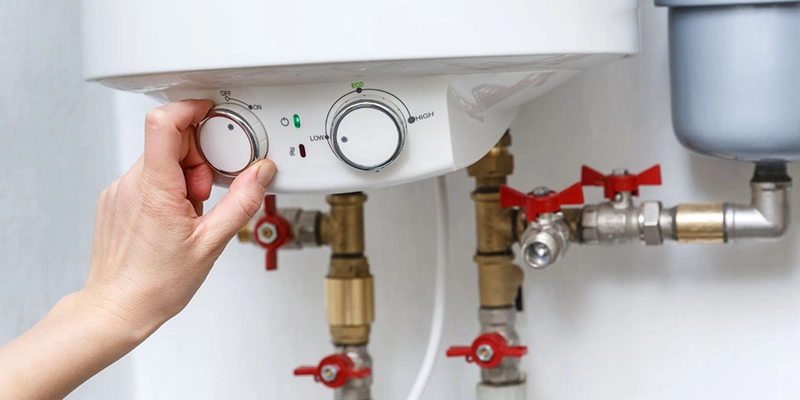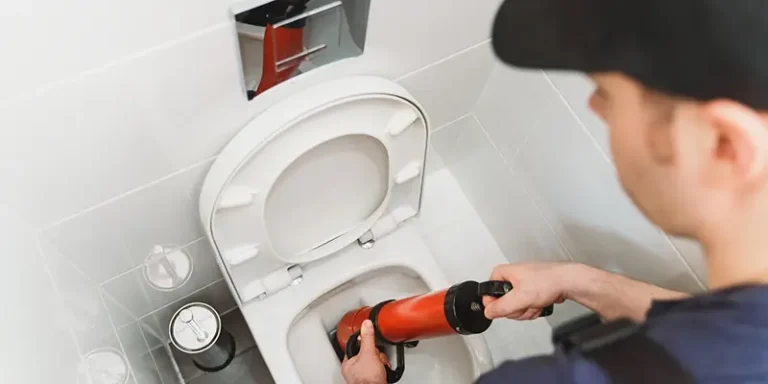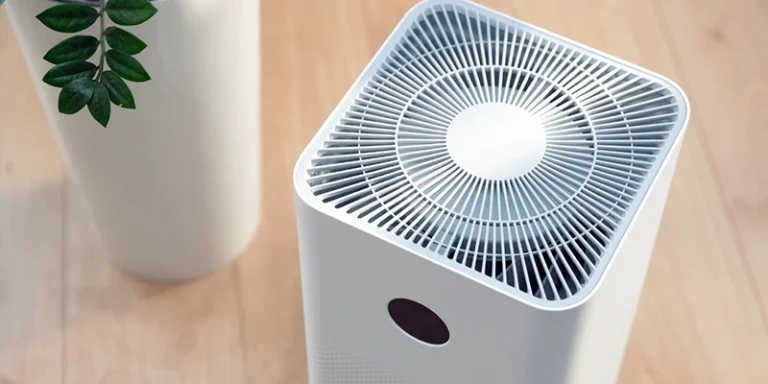Hot water heaters are expensive but necessary.
Ideally, you want to extend your water heater’s lifespan as long as possible, especially if you live in a cold weather region and can’t face cold water showers!
Most of us don’t think about the condition of our hot water heater until it breaks.
Answering the question, “how long do water heaters last?” will depend on water quality, the type of water heater, and whether or not you’ve carried out regular water heater maintenance.
If you’ve bought a new home with an old hot water heater and aren’t sure about the history or life expectancy of the model, you should familiarize yourself with the signs that your water heater is wearing out and needs replacement or repair.
Let’s take a deep dive into water heaters and how long you can expect them to last.
What factors affect the life expectancy of your hot water heater?
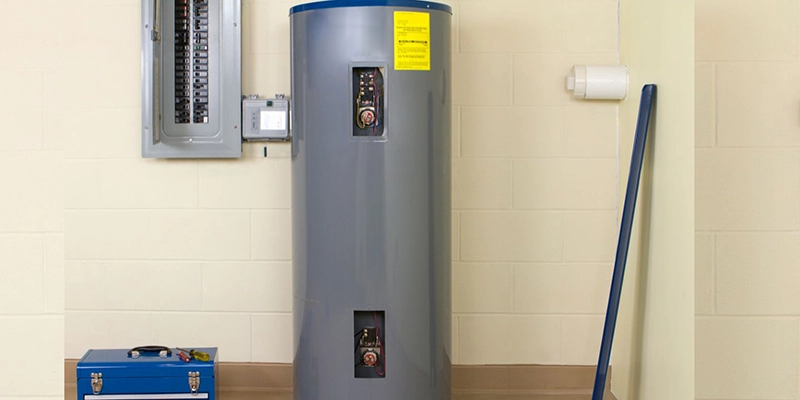
It’s important to know how long your water heater will last and when it should be replaced.
Tinted water, cold water, or noises coming from inside the tank are signs that you should probably replace your water heater or call a maintenance professional to conduct repairs.
Generally, your water heater will last around 12 years with proper care and maintenance, but some will last even longer.
The lifespan of your water heater varies between tankless water heaters and tank water heaters, how often it’s used, where it’s located, and the quality of the water supply in your area.
For example, if your water heater is located in a basement where it takes longer to heat up and places strain on the heating element.
If your water supply has a high mineral content, it can reduce the lifespan of your water heater by up to two years. Most tank water heaters will last for about eight to twelve years, while a tankless water heater can last as long as 20 years.
A gas water heater will probably expire faster than an electric water heater, which can last for 10-15 years.
Signs That You Need to Replace Your Water Heater
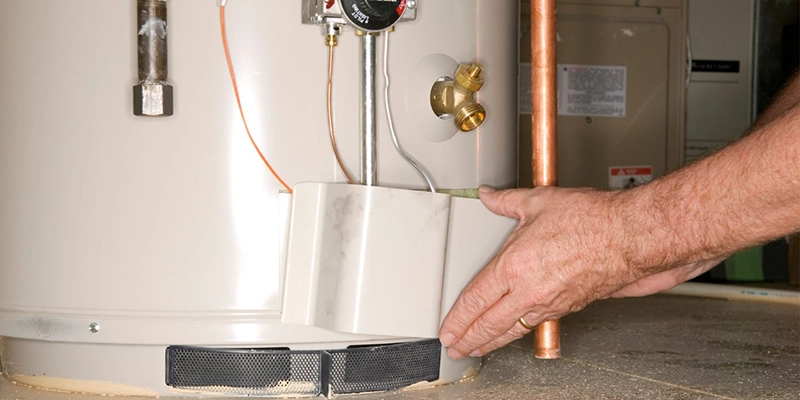
Nothing lasts forever; water heaters will inevitably need replacement.
Here are a few signs that your water may need replacing.
1. Your heater has reached a specific age
- All water heaters have an expiration date – usually between eight and ten years – but the actual need to find a replacement may occur well before or after this time.
- Even if your water heater isn’t showing signs of expiry, you should replace a water heater once a decade has passed from the manufacture date.
- You can determine the age of your water heater by looking at the serial number. This is usually displayed on a sticker on the upper half of the tank.
- The letter at the beginning of each number is a code indicating the month, followed by the last two digits of the year of manufacturer, e.g., a water heater with a sticker that reads A2101193750 was produced in January 2021, while a serial number that says D14087893411 was produced in April of 2014.
2. You’ve spotted signs of rust
- If corrosion has set in on your water heater, it will spread and start to eat through the steel, which can lead to leaks.
- When you start spotting rust in hot water in your faucets, odds are you have a rusty water heater tank.
- If rust is present in both hot and cold water, this is usually an indication that your pipes are rusty.
- Rust that gathers around the pressure relief valve or water inlet may mean that rust has set in inside the water tank, and it will require replacement.
3. Your water heater makes a noise
- If a water heater starts emitting rumbling noises when it heats water, it may fail.
- This could be due to sediment buildup on the bottom of the tank.
- Over time the sediment hardens and thickens on the tank floor, which wears the heater down and leads to energy efficiency issues and damage, including crack formation.
- You can avoid this issue by flushing your water heater tank at least once a year.
4. There are leaks around the water heater
- If your water heater leaks, you may have a problem with your hands. A significant leak can lead to property damage, depending on where it’s located.
- If you notice water leaking around the floor of the tank or around the fittings and connections, it’s time to call a professional plumber.
- Water saturation can damage your carpets, furnishings, floors, and walls – always address leaks early.
5. Your water heater is not heating the water
- If your water heater can’t heat water, consider it a warning size. Most water heaters stop producing hot water due to faulty heating elements or thermostats.
- If you’ve just expanded your home or if there are more members in your household than before, and the water is lukewarm, you should also make sure that the tank size is sufficient for the needs of your home.
- To determine what the issue is, check that your thermostat is set between 120 and 140 degrees.
- If that doesn’t fix the issue, it’s time to call a plumber to check the heating element and output capacity.
- A broken heating element is easy to replace and affordable, but if the output is the issue, you may need to purchase an additional water heater or a new model.
Replacing your hot water heater
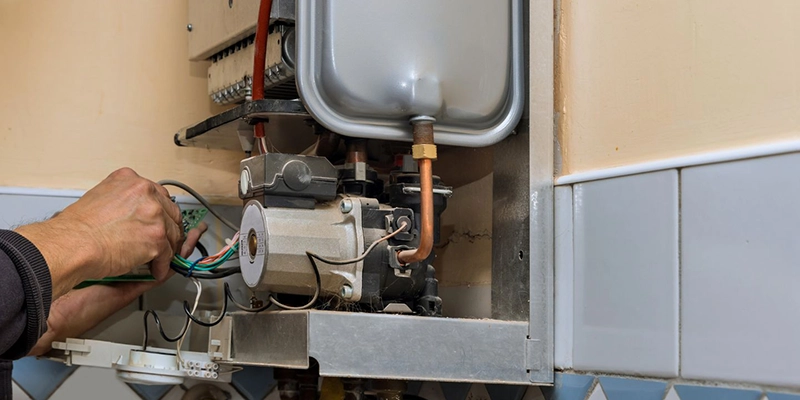
Eventually, your hot water heater needs to be replaced. Starting planning its replacement two years before obsolescence.
This will help you budget (and potentially avoid damage to your property or unexpected expenses down the line).
Take your time, do your research, and compare different models.
There are a few things you should take into account before deciding on your next water heater, including:
- Energy savings: Newer models can lower your utility bills and improve energy efficiency for your home.
Technological advances, even in entry-level models, will have a significant impact on your water and heating bills. - Warranties: If your water heater comes with a warranty and shows some of the warning signs discussed above, you may be able to repair it under warranty.
Call the manufacturer before making a decision – you may be able to avoid buying a replacement altogether. - Type of heater: There are several varieties of water heaters out there, including tank and tankless water heaters, storage heaters, and solar water heaters.
Solar heaters are the most expensive to buy and install, but they are the most energy efficient and will lead to the most savings over time.
A tank water heater powered by electricity is affordable to buy but expensive to run. Compare all of your options to determine which one works best for your needs. - Brands: If it’s time to replace your water heater, make sure to choose a reputable brand with a good warranty.
Bradford White, Whirlpool, Kenmore, Rheem, Westinghouse, and AO Smith are all good options, but there are many others to consider.
Ask your plumber for recommendations and read online reviews.
Conclusion
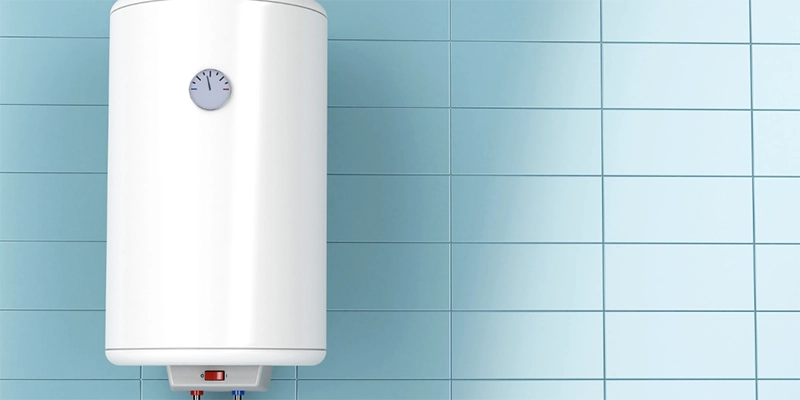
The average lifespan of a water heater is around 12 years, but you may find yourself in need of a replacement long before or after that period.
If you live in an area with hard water, have expanded your household, spotted some warning signs like strange noises or leaks, or haven’t done maintenance to flush sediment buildup or avoid corrosion in a while, you may need to look for a new water heater sooner rather than later.
Always speak to a professional and do your research when it’s time to replace your water heater.




